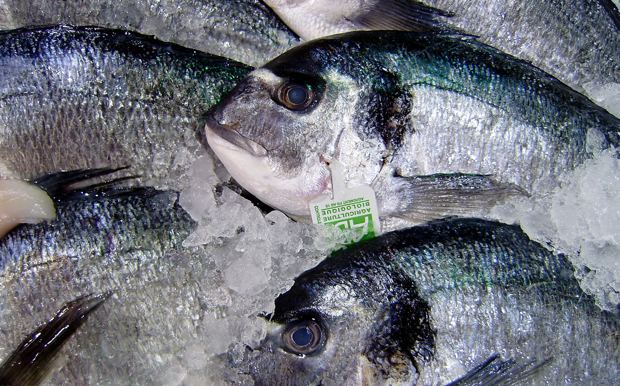- UID
- 690014
- 在线时间
- 小时
- 注册时间
- 2011-11-7
- 最后登录
- 1970-1-1
- 主题
- 帖子
- 性别
- 保密
|
New Technology To Save--Not Just Catch--Marine Life
After decades of more and more powerful fish-catching innovation, scientists are now developing ways for fisherman to catch just the amount, and type, of fish they need.

Technological advancement on the high seas has advanced almost in lock step with the decline of healthy fisheries around the globe. Since the 1950s, fishery collapse has been predictably preceeded by new advances that allow fisherman to hoover up ever-increasing catches: floating freezer ships, 30-mile drift nets, and open season in international waters.
But technology is also offering a glimmer of a second chance.
A combination of prudent regulation and technological innovation has started to limit overfishing and accidental bycatch of millions of tons of non-commerical sealife that is caught and dumped overboard each year--at least in some places.
In U.S. fisheries, according to a new study in Biological Conservation, turtle deaths are down 90% after regulations began requiring Turtle Excluder Devices on nets and other measures more than a decade ago. Today, an estimated 4,600 sea turtles die each year off along the U.S. coastline, down from 70,000 deaths of the 300,000 turtles caught annually in the late 1980s.
Elsewhere, small sonar devices are deterring dolphins from entering fishing nets, ship-board monitoring allows fisherman to relay the locations of endanger species such as Atlantic salmon or yellowtail flounder in nets within minutes, and special circle or "weak" hooks allow certain fish species to swim free. There has even been a collaboration between (historically hostile) fishermen and scientists leading to specialized trawls that only target individual species.
But technology can only go so far. As we reported in July, many countries are still exceeding their annual sustainable catch within several months of each year.
Sustainably harvesting the last remaining fish will do us, or them, little good. The real challenge will be finding the political will to implement all our bright ideas for future generations.
|
|

 京公网安备11010202008513号 京ICP证101109号 京ICP备12012021号
京公网安备11010202008513号 京ICP证101109号 京ICP备12012021号